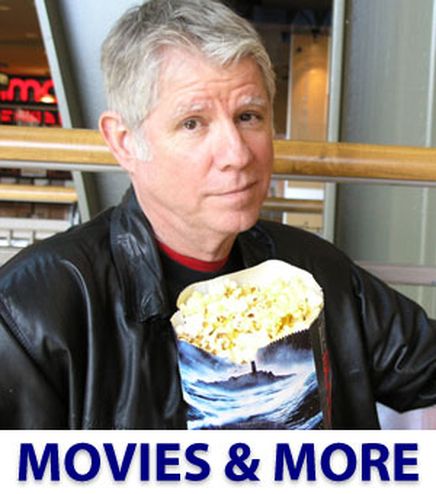‘Dead Fish’ wins over ‘The Zero’
The 2007 Washington State Book Awards selections are out, and you can see the top six choices (plus the other finalists) by clicking here. Or you can wait until Sunday and read who the winners are in the print edition of The Spokesman-Review.
There are at least a couple of local references. One involves general nonfiction winner William D. Layman, whose book “River of Memory: The Everlasting Columbia” is the subject of an exhibit at The MAC that runs through Jan. 8.
Another is the fact that Spokane author Jess Walter’s book “The Zero” lost out in the fiction category to Charles D’Ambrosio’s story collection “The Dead Fish Museum.”
I heard D’Ambrosio read from his book at last April’s Get Lit! event, and I love his writing. But I’m curious about something: Why is nobody making a fuss that his book beat out Walter’s, which was a National Book Awards finalist?
There is precedence here: In 1998, the jury for what was then called the Governor’s Writers Awards didn’t give Jon Krakauer an award for his book “Into Thin Air.” Post-Intelligencer book critic John Marshall wrote a story condemning the act, adding that David Guterson hadn’t been given an award in 1995 for his novel “Snow Falling on Cedars.”
Marshall pointed out that both books had earned national acclaim. Besides being best-sellers, Krakauer’s book had been a finalist for the National Book Critics Circle award for nonfiction, Guterson’s novel had won the PEN/Faulkner award for fiction.
Of course, the rules were different in those earlier days. Three years ago the awards came under the auspices of the Washington Center for the Book, which is run out of the Seattle Public Library. Back during the Krakauer/Guterson controversies, the awards were given to 10 books in all – books that each jury chose according to its own dictates.
On the two juries that I served on, we tried to choose a range of books, making sure – even though we didn’t have to – to include all genres: fiction, nonfiction, history, biography, poetry, children’s lit, etc. That meant that some worthy books, say the third best novel, got left out because one of the jury members thought a poet or historian or children’s author deserved to be recognized.
One of those books left out during my tenure was Seattle author Charles Johnson’s novel “Middle Passage,” which won the 1990 National Book Award.
The way things work these days, the Washington State Book Awards are more similar to other such awards. The juries select winners in six categories: fiction, poetry, history/biography, general nonfiction, children’s picture book and young-adult novel. Along with the winners, each of whom receives a $1,000 honorarium, a number of finalists also are named.
Following D’Ambrosio’s “Dead Fish Museum,” the fiction finalists are “The Littlest Hitler: Stories” by Ryan Boudinot of Seattle, “The Inhabited World” by David Long of Tacoma and Walter’s “The Zero.”
When Marshall wrote his story, he called the fact that Krakauer and Guterson’s books were ignored by the Governor’s Writers Awards juries “significant omissions.” Since he wasn’t present at the discussions, he clearly was second-guessing the jury’s selection.
I’m not going to second-guess this year’s jury. As I say, I loved D’Ambrosio’s book, and I don’t envy the judges’ task at having to pick between it and “The Zero” or any of the other finalists.
I wonder, though, if anyone else is going even to notice that – like other nationally recognized novels of the past – Walter’s novel was left in the remainder pile by a panel trying to determine the best that a single state has to offer.
